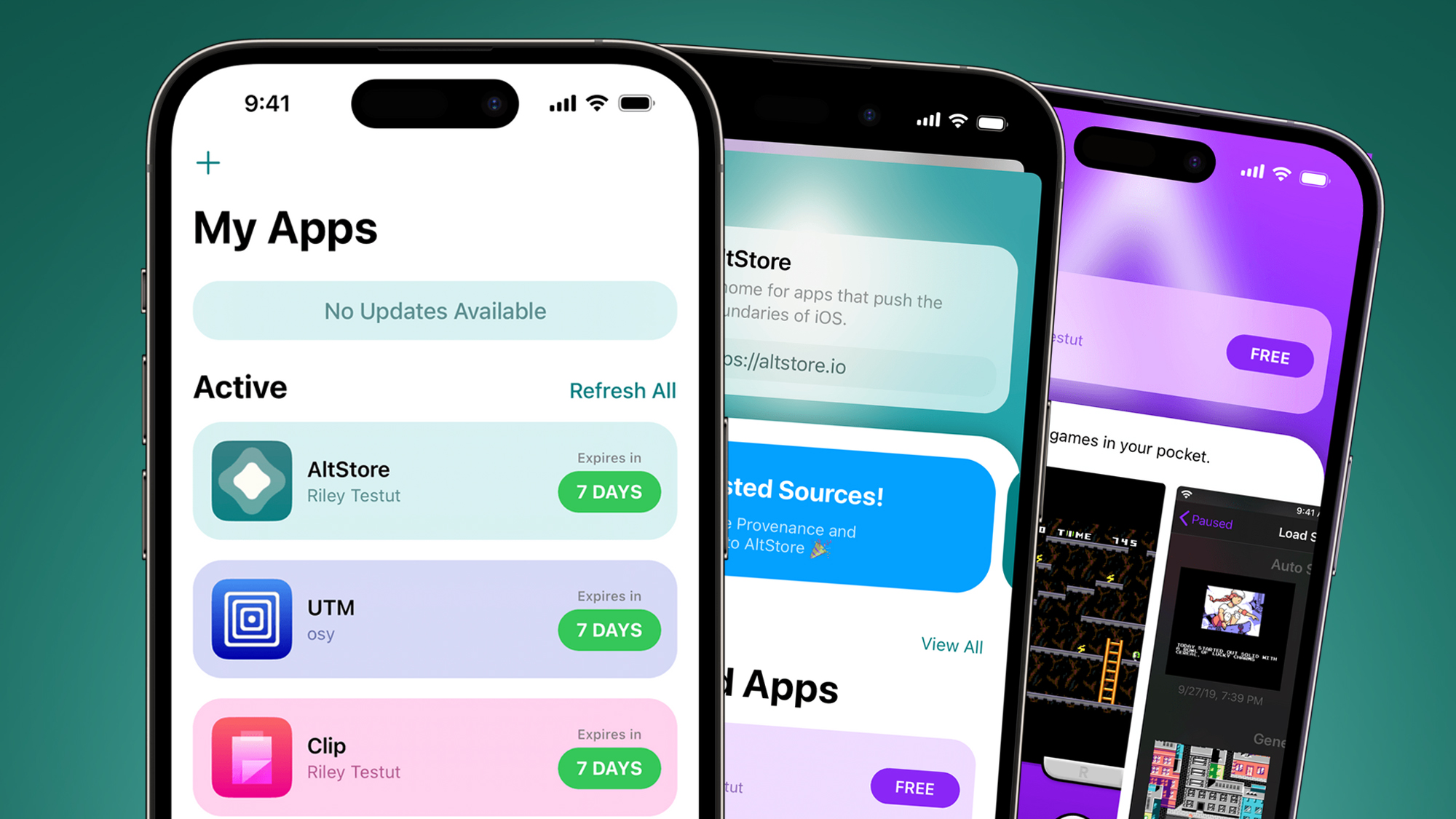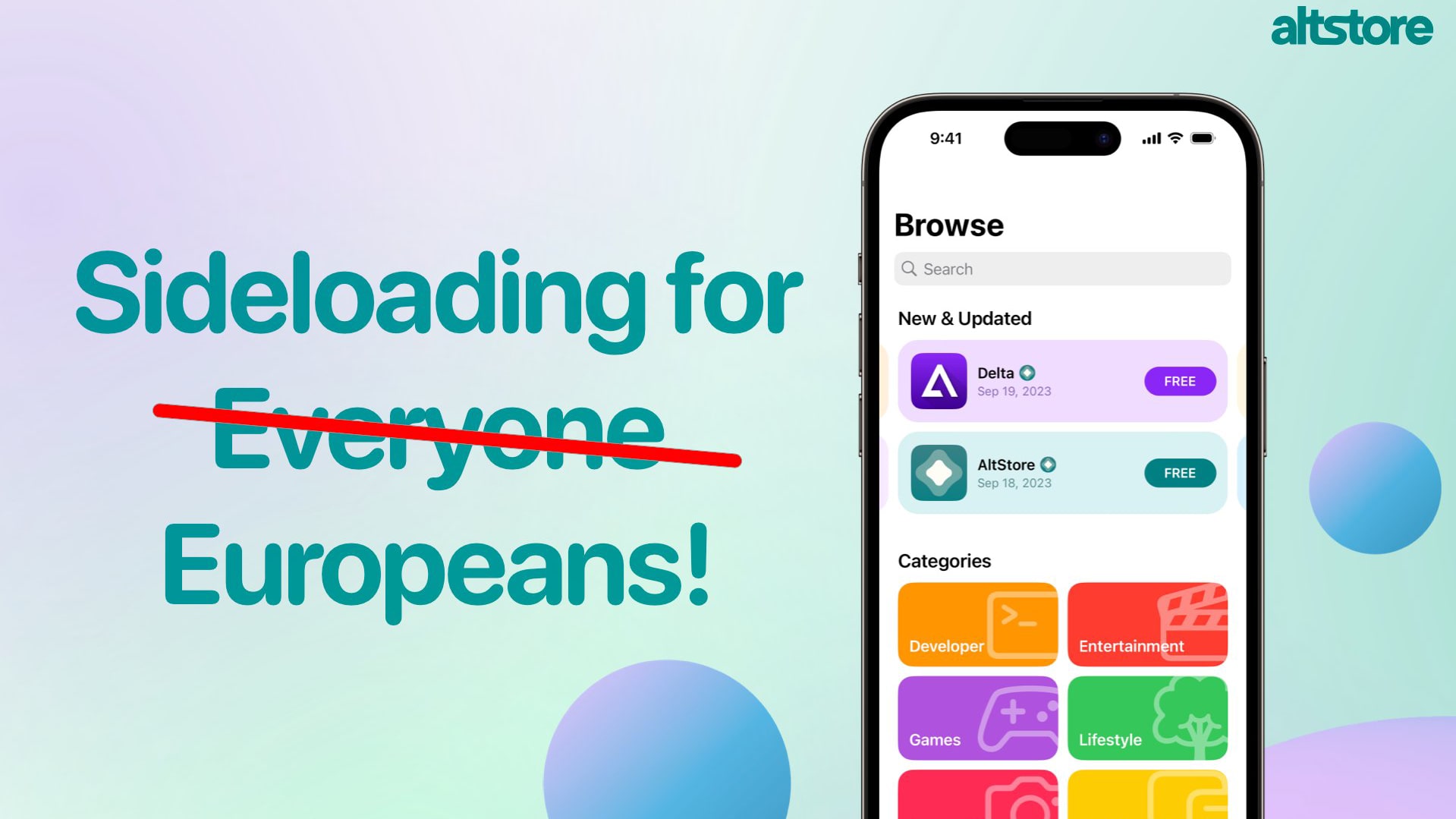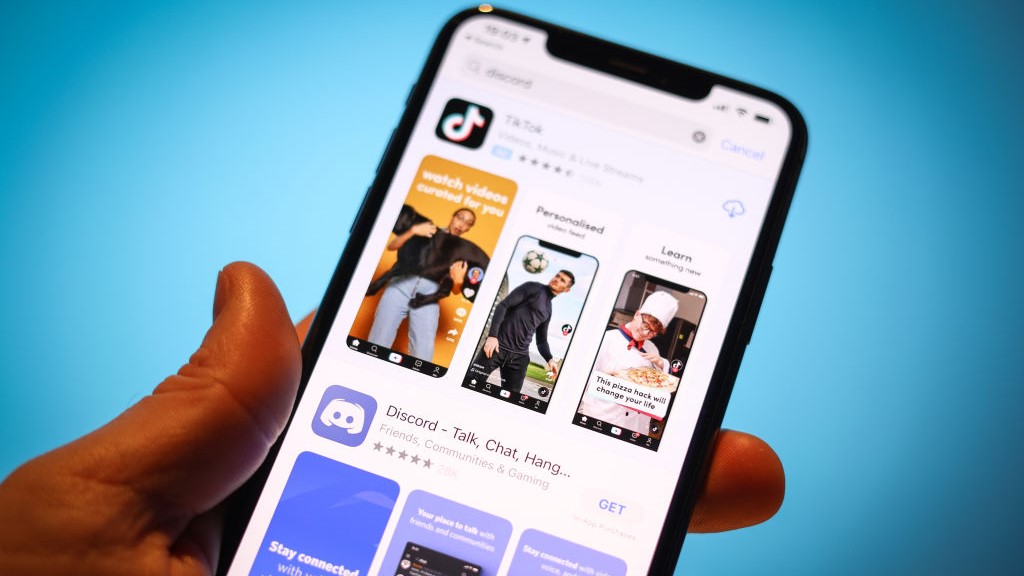Here's what alternative iPhone app stores will look like – and how they'll work
Sideloading is coming in hot

Sign up for breaking news, reviews, opinion, top tech deals, and more.
You are now subscribed
Your newsletter sign-up was successful
Big changes are coming to the iOS App Store for users in the European Union (EU), as Apple has announced it will soon start allowing third-party app stores to distribute apps to users from a host of European nations. And now, we’ve gained our first look at what these stores could look like.
AltStore, an existing provider of “sideloaded” apps, has announced they’re working on bringing their own alternative app store to iOS. That will move the store out of its current gray area of providing unofficial apps and transform it into what its developer calls a "legitimate app marketplace".
Right now, AltStore provides a range of apps that fall foul of Apple’s existing App Store rules. For example, it hosts Delta, a Nintendo games console emulator, and UTM, a virtual machine that allows you to run Linux, Windows, and more on iOS.
AltStore’s developer did not outline exactly what changes it is planning to make, but one difference is likely to be the installation process. Right now, you have to install a server app onto your Mac or Windows PC, then connect your iOS device and install the app store from your computer.
Once AltStore is approved by Apple as that “legitimate app marketplace,” you will likely simply be able to download the AltStore app directly to your iPhone, with no lengthy workaround process required. In theory, this will mean being able to download any apps you want, including ones that don't conform to Apple's own App Store guidelines.

You'll also be able to set the likes of AltStore (assuming it gets approval) as your iPhone's default app store, and manage them in Settings. As Apple states in its explainer about the app changes, "users can manage their list of allowed marketplace developers and their marketplace apps in Settings and remove them at any time".
Your default third-party app store will integrate with some iPhone features like Spotlight, to help you find and use the apps. But if you delete that non-Apple App Store, this will also delete "all related data from the device and stop updates for apps from that marketplace".
Sign up for breaking news, reviews, opinion, top tech deals, and more.
A seismic change coming to your apps

The momentous change in Apple’s App Store policy will be implemented in iOS 17.4, which is currently in beta and is due for a full release in March.
Anyone in the E.U. will be able to install apps from third-party stores, and any developer will be able to release their own app store as long as they meet Apple’s requirements for fraud prevention, customer service and experience, and can provide a €1m credit note attesting to its ability to guarantee user support. However, despite the potential for this move to upend the way European users get their apps, there are a few catches attached to it.
For instance, Apple says that restrictions you place on in-app purchases using iOS’s Screen Time feature will not work in third-party app stores. Likewise, Family Purchase Sharing will be limited, as will the Ask to Buy feature, while universal purchases – where apps you buy work across various Apple platforms – won’t be available. That’s because Apple won’t be facilitating payments on third-party stores, so won’t be able to implement these features. The company also says it won’t be able to help users with refunds, purchase history, subscription management, and more.
Apple has fought tooth and nail against this change, but its hand was forced by the E.U.’s Digital Markets Act (DMA), which will start levying hefty fines against companies that don’t open up their platforms from March onwards. Apple says this move is likely to provide “new avenues for malware, fraud and scams, illicit and harmful content, and other privacy and security threats,” and that it won’t be lifting its App Store restrictions anywhere outside the EU. It’s possible the company might even be able to stop you bypassing the geolocation restrictions using a VPN, too.
That said, opening up iOS in this way could lead to some more positive changes. Web browsers on iOS won’t be forced to use Apple’s WebKit engine, for example, and users will be given greater ability to change their default browser. Payment apps will also gain access to Apple’s NFC system, which could mean we start to see contactless alternatives to Apple Pay popping up.
With the EU breathing down its neck, Apple has been forced to begrudgingly make these changes. That could prompt other jurisdictions around the world to consider passing their own app store laws, finally blasting a hole through Apple’s long-standing walled garden. That’s perhaps something for the future – for now, AltStore has shown us what that future could look like.
You might also like

Alex Blake has been fooling around with computers since the early 1990s, and since that time he's learned a thing or two about tech. No more than two things, though. That's all his brain can hold. As well as TechRadar, Alex writes for iMore, Digital Trends and Creative Bloq, among others. He was previously commissioning editor at MacFormat magazine. That means he mostly covers the world of Apple and its latest products, but also Windows, computer peripherals, mobile apps, and much more beyond. When not writing, you can find him hiking the English countryside and gaming on his PC.